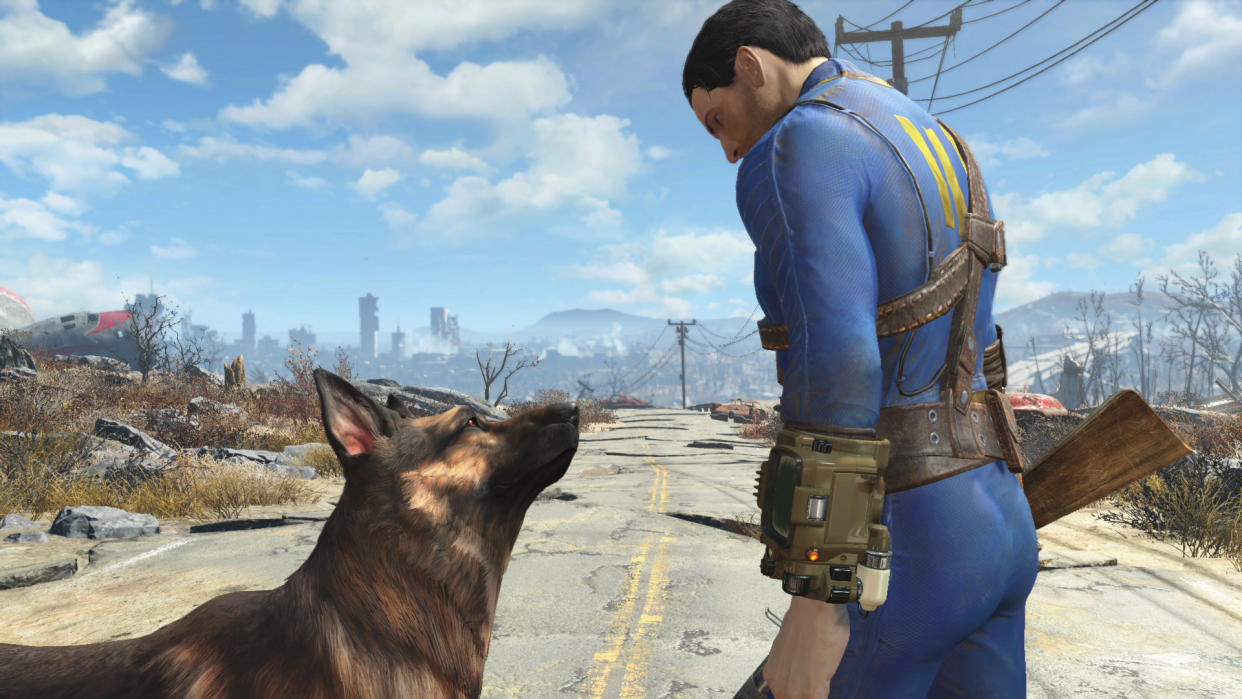All this Fallout TV show buzz and no new Fallout game to play—but so what?

It's impossible not to notice that while the success of the Fallout TV show is getting lots of people excited about Fallout, there's no new Fallout game to play. Fallout 76 is over five years old, and Fallout 4 turns nine this year. Bethesda is going to make a Fallout 5, but you might lose your money if you bet that it'll be out by 2030.
The observation that Bethesda might've missed an opportunity has been made many times on social media, and yeah, I assume it would've been prudent business-doing to have dropped a new Fallout game somewhere in the vicinity of all this buzz. But I'm not convinced that Bethesda Game Studios has made some huge blunder here. Its leisurely pace is one of the things I like about it.
Bethesda gets poked fun at for rereleasing old games more often than it makes new ones, but can you blame it? Thanks to the Fallout show's popularity and some strategically timed discounts, Fallout 4, Fallout 4: Game of the Year Edition, Fallout 76, Fallout: New Vegas, Fallout 3, Fallout 4 VR, Fallout Tactics: Brotherhood of Steel, and the Fallout Franchise Bundle have all jumped onto Steam's top 100 bestsellers list this week. The original two Fallouts are also on sale.
I couldn't get into Fallout 4 when it released, but I reinstalled it this week to give it another shot, and didn't give much thought to its age. It feels old-fashioned to think of an eight-year-old game as retired, especially when it's still getting big updates. We're not in the era where eight years represents the difference between Doom and Grand Theft Auto 3—and even then, were still playing Doom when GTA 3 came out, and are still playing it now.
I'd also contend that Bethesda Game Studios' slow rate of releases allows its games' modding scenes to mature, since there's no temptation to switch to the next sequel every couple years. Not many games have as many big ambitious mods in progress as Fallout 4 does.
I don't think it's such a bad thing that we wound up in the universe where the success of the Fallout show has people downloading Fallout: New Vegas, as opposed to the one where we're on Fallout 11: Fresno.
The big Fallout 4 "next-gen" update has been slightly controversial since it ended up delaying the imminent Fallout: London mod launch, but I think official updates conflicting with ambitious mod projects falls into the 'good problem to have' category. We still don't have a Creation Kit 2 for Starfield, but it's expected—I hope making games that can support major modding scenes remains a priority for Bethesda, because it certainly hasn't for every developer.
There's something to be said for iterating on ideas with lots of easy-to-digest small plates instead of hiding in the kitchen all day cooking up one enormous main course. Ubisoft's recent Prince of Persia: The Lost Crown and upcoming Prince of Persia roguelite are good examples of the former approach. And Bethesda did release a good Fallout spinoff in Fallout Shelter (which, granted, is almost a decade old itself).
But I don't think the world really needs multiple new, giant, open world Bethesda Game Studios games at the same time. Starfield is enough for a while. I didn't click with it, but with The Elder Scrolls 6 years out still, I'm curious to see how the developer responds to Starfield feedback, and everything else it's learned since Skyrim came out.
In an alternate universe, Bethesda Game Studios blew itself up into a Fallout and Elder Scrolls-producing machine after Fallout 3 and Skyrim, the way Ubisoft turned itself into a semi-auto Assassin's Creed gun. I don't think it's such a bad thing that we wound up in the universe where the success of the Fallout show has people downloading Fallout: New Vegas, as opposed to the one where we're on Fallout 11: Fresno.